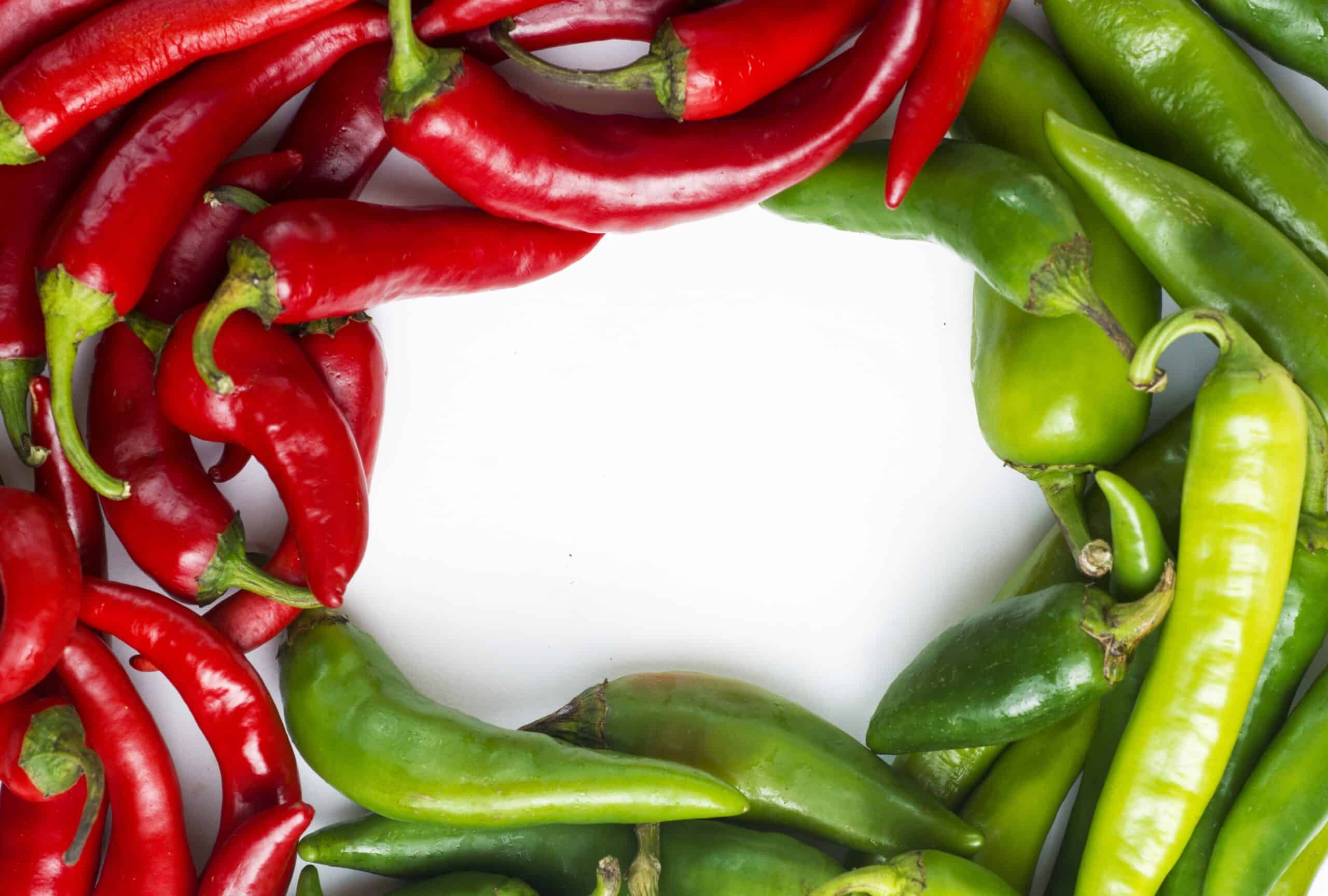Chili peppers are available in a number of plant varieties of different shapes, sizes, and spiciness. Bell peppers for example are sweet and range from red to yellow, to orange and green in color while cayenne peppers are much hotter peppers that are long and red.
Chili peppers have been used to help treat numerous ailments throughout history, dating back to the Mayans using them to help treat respiratory conditions, and the Aztecs using chili peppers to help provide relief from toothaches. Chili peppers have also been used to help treat stiff joints, heart problems, headache, and more.
Specific nutrients and compounds within chili peppers vary based on the different types of pepper varieties with most being a range of vitamins, minerals, and antioxidants. Chili peppers are rich in vitamin C, vitamin A, and folate to go along with a list of other micronutrients.
One half cup of red chili peppers can contain: 30 calories, 6.5 grams carbs, 1.5 grams protein, 0.5 grams fat, 1 gram of dietary fiber, 180% of the daily recommended value for vitamin C, 19% of the DRV of folate, 14% of the DRV of vitamin A, 13% DRV of vitamin K, 7% DRV of potassium and manganese, 5% DRV of copper, and 5% of the daily recommended value of niacin to go along with other beneficial antioxidants such as capsaicin and carotenoids.
Chili peppers have been studied for the metabolism ramping and fat burning boosting activities. Studies suggest that the capsaicin rich veggies help to increase energy expenditure and stimulate the breakdown of fat stored in the body to be used as fuel. A study published in the International Journal of Obesity found eating capsaicin before meals increased satiety and reduced the subsequent intake of calories and fat to promote weight loss by decreasing hunger and appetite.
A study published in the New England Journal of Medicine reported administering red peppers to those with indigestion helped to reduce heartburn related pain, which may be due to capsaicin binding to pain receptors to reduce the perception of pain in the body.
Chili peppers are a rich source of antioxidants such as capsanthin, lutein, ferulic acid and zeaxanthin that help to neutralize free radicals while protecting against chronic diseases; they are especially high in vitamins A and C which double as antioxidants within the body.
Research suggests that chili peppers may help to reduce blood pressure levels to help keep the heart functioning in optimal condition; this may be due to capsaicin increasing the levels of IGF-1 hormones that may help to dilate blood vessels to provide protection against high blood pressure. A study published in Cell Biology showed capsaicin activated a specific protein involved in the regulation of blood pressure which may help to prevent hypertension.
Chili peppers have been used to treat a range of digestive conditions including acid reflux, stomach ulcers, indigestion, and loss of appetite which may be due to the over 200 natural compounds that may help to regulate gastric secretions, fight pathogens in the digestive tract, and strengthen the defense mechanisms of the stomach while stimulating digestion.
Chili peppers are being studied for the use in the fight against cancer. However, more research is needed in this area as thus far research on the relationship between cancer and chili peppers has yielded mixed results.
Along with improving several aspects of overall health chili peppers may also help to extend longevity and reduce the risk of mortality; according to a large study of more than 16,000 participants the consumption of hot red chili peppers was associated with a lower risk of mortality over an average of 19 years. While it is unclear as to why, it is believed that the benefits may be due to capsaicin improving gut health and acting as an antioxidant to decrease overall inflammation, according to the researchers.
Chili peppers can make a great addition to soups, salads, stews, stir fry, sauces, salsa, as toppings, or even added to scrambled eggs to incorporate them into your daily diet. Allergic reactions to chili peppers are fairly uncommon, but they have been reported to cause symptoms such as hives, itching and swelling. Direct exposure to skin can trigger hot pepper hands, which is skin irritation that can be avoided by wearing gloves when handling them and washing your hands immediately. Some people may be sensitive to the effects of chili peppers, for those people they could cause digestive stress, heartburn, acid reflux, diarrhea and cramps.




